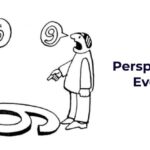Leading the Infinite Game
- MJ Nyota
- leadership, learning
- 0 Comments
Simon Sinek, renowned for his insights into leadership, speaks about playing the “infinite game” in business and how it differs fundamentally from a finite game. Here are the five core principles of leadership from Sinek that resonate deeply with me:
1. Have a Just Cause
“A just cause is a belief system so strong that people will follow it, even in the absence of tangible rewards.”
“A just cause is a reason so big, it can never be fully accomplished,” Simon Sinek says. In our work at Kocha Hub, our cause is clear: empowering creators to thrive in the digital space. This is not just a mission to attract customers but a vision that unites our team. Even as a startup, our just cause has drawn people to join our journey, motivated by more than just financial gain. When your team believes in a greater purpose, they work with a passion that transcends the challenges of startup life.
2. Trust Your Team
Sinek emphasizes the importance of trust as a cornerstone of effective leadership. This year, I learned this lesson the hard way. Trusting your team’s dedication and ensuring you build a supportive environment is crucial for long-term success. A team that feels trusted is a team that performs better and remains loyal, even during uncertain times.
3. Worthy Rivals
Competition is a catalyst for innovation.
One of the most surprising yet powerful lessons from Sinek is about the role of rivals. He challenges us to view rivals not as enemies but as worthy competitors who push us to become better versions of ourselves. At Kocha Hub, we celebrate the achievements of our rivals, knowing that their success raises the bar for all of us. This mindset has helped us learn from their strategies and return stronger, knowing that competition is healthy for growth.
4. Capacity for Existential Flexibility
“The ability to adapt to change is a critical skill for leaders.”
The ability to pivot is what separates stagnation from growth. Sinek calls this existential flexibility, and it’s something we’ve embraced at Kocha. Since our inception, we’ve had to adapt repeatedly, aligning our product and strategy with market and customer feedback. This adaptability isn’t just necessary; it’s essential for survival in a rapidly changing digital landscape. As we plan for a strategic shift in our brand for 2025, we remind ourselves that flexibility is not just about survival but about thriving in alignment with our just cause.
5. Courage to Lead
Leadership is not about being fearless; it’s about acting courageously in the face of uncertainty.
Finally, Sinek speaks about the courage to lead—especially in uncertain times. When I first brought my team together, uncertainty was palpable, and at times, I let that uncertainty influence the team, diminishing their confidence in our cause. Through the lessons of this year, I’ve learned that showing courage, even when results are not immediate, fosters hope and trust. As a leader, giving the team confidence and a reason to believe in the journey is as crucial as the destination itself.
In Conclusion
Leadership is a journey of growth, persistence, and constant adaptation. These insights from Simon Sinek remind us that leadership is not about the short term but playing the infinite game—one where the goal is to keep building, learning, and evolving.
“The courage to lead is what separates those who are remembered from those who are forgotten.” – Simon Sinek
Learning never stops.
Take a moment to reflect and act on what resonates with you.
Keep evolving.
– MJ Nyota



